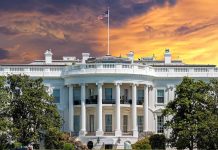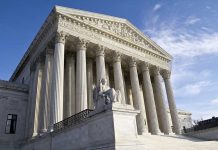
The Biden administration’s refusal to grant Nikki Haley Secret Service protection, despite credible Iranian threats, has ignited a fierce debate over national security and protection for former high-profile diplomats.
At a Glance
- Former UN Ambassador Nikki Haley has faced credible threats from Iranian-linked actors since 2021.
- Haley was informed by the FBI that Iran had placed her on a “kill list” due to her work at the UN.
- Despite these threats, the Biden administration has not granted Haley Secret Service protection.
- Other former Trump officials have received government-provided security due to similar threats.
- A Pakistani citizen with ties to Iran was charged with attempting to hire a hitman to murder a politician.
Biden Administration’s Security Decisions Under Scrutiny
The Biden administration faces severe criticism for denying Secret Service protection to former U.N. Ambassador Nikki Haley. This decision raises significant concerns as credible threats from Iranian sources continue to mount against her. Haley revealed that the Iranian government had placed her on a “kill list,” leading many to question the adequacy and consistency of protective measures for high-profile political figures.
The FBI informed Haley about Iranian threats targeting her since 2021 due to her role at the UN. These threats intensified during her presidential campaign, with the FBI warning her that Tehran was extending its reach to disrupt U.S. politics. Reports emerged of an Iranian-backed “murder-for-hire plot” against her, which was fortunately foiled in July.
Despite the alarming nature of these threats, the Biden administration has yet to authorize Secret Service protection for Haley. This refusal stands in stark contrast to the treatment of other former Trump officials like Mike Pompeo and John Bolton, who have received government-provided security due to similar Iranian threats. Haley sought protection from DHS Secretary Alejandro Mayorkas in January 2024, following an uptick in threats and incidents, including a close encounter with a potential attacker at a New Hampshire rally and violent protests at her other events.
Biden Admin Refused to Grant Nikki Haley Secret Service Protection Despite Iranian Threats https://t.co/S8tQ9gBMf8
— Daily Wire News (@DailyWireNews) September 9, 2024
Mounting Threats and Foiled Attacks
Haley’s situation escalated with additional threats aimed at her South Carolina home and multiple credible death threats. The Candidate Protection Advisory Committee supported granting her protection, but DHS remained silent. Iranian threats towards high-profile U.S. politicians are not new; other officials received similar warnings and subsequent protection.
A significant development involved Asif Merchant, a Pakistani citizen with Iranian ties, charged with plotting to assassinate Haley. Sen. Chuck Grassley provided details about this plot, which reportedly targeted prominent politicians, including Trump, Haley, and even President Biden.
Merchant’s attempt included detailed plans, with his handler, Mehardad Yousef, demonstrating assassination techniques to ensure success.
Federal investigators continue to probe the Iran-backed plots. Merchant, arrested in July 2024, has been charged with murder for hire, involving transactions and discussions about assassination logistics. His actions were intended as retaliation for the 2020 U.S. airstrike that killed Iranian General Qassem Soleimani.
Breaking News: Biden Admin Refused to Grant Nikki Haley Secret Service Protection Despite Iranian Threats: Former United Nations Ambassador Nikki Haley remains without government-provided security, despite facing years of credible threats from… https://t.co/auOa1Q3kKc pic.twitter.com/1Fa0vLGVsL
— ZBreakingNewz (@ZBreakingNewz) September 10, 2024
Government’s Inconsistency in Protecting High-Profile Figures
This situation highlights broader concerns regarding the protection of former diplomats and politicians who remain at risk due to their past roles. Critics argue that the government’s selective approach jeopardizes the safety of key figures like Haley. The FBI and Department of Homeland Security’s silence on this matter further aggravates these concerns, raising questions about the consistency and fairness of security protocols.
The denial of protection for Haley amidst clear, persistent threats is troubling. Haley’s request for safety should press the administration to reevaluate policies to ensure consistent and adequate protection for all high-risk individuals, irrespective of political affiliations. Until then, the safety and security of former diplomats, especially those vocally against international threats like Haley, remain a contentious issue.






















